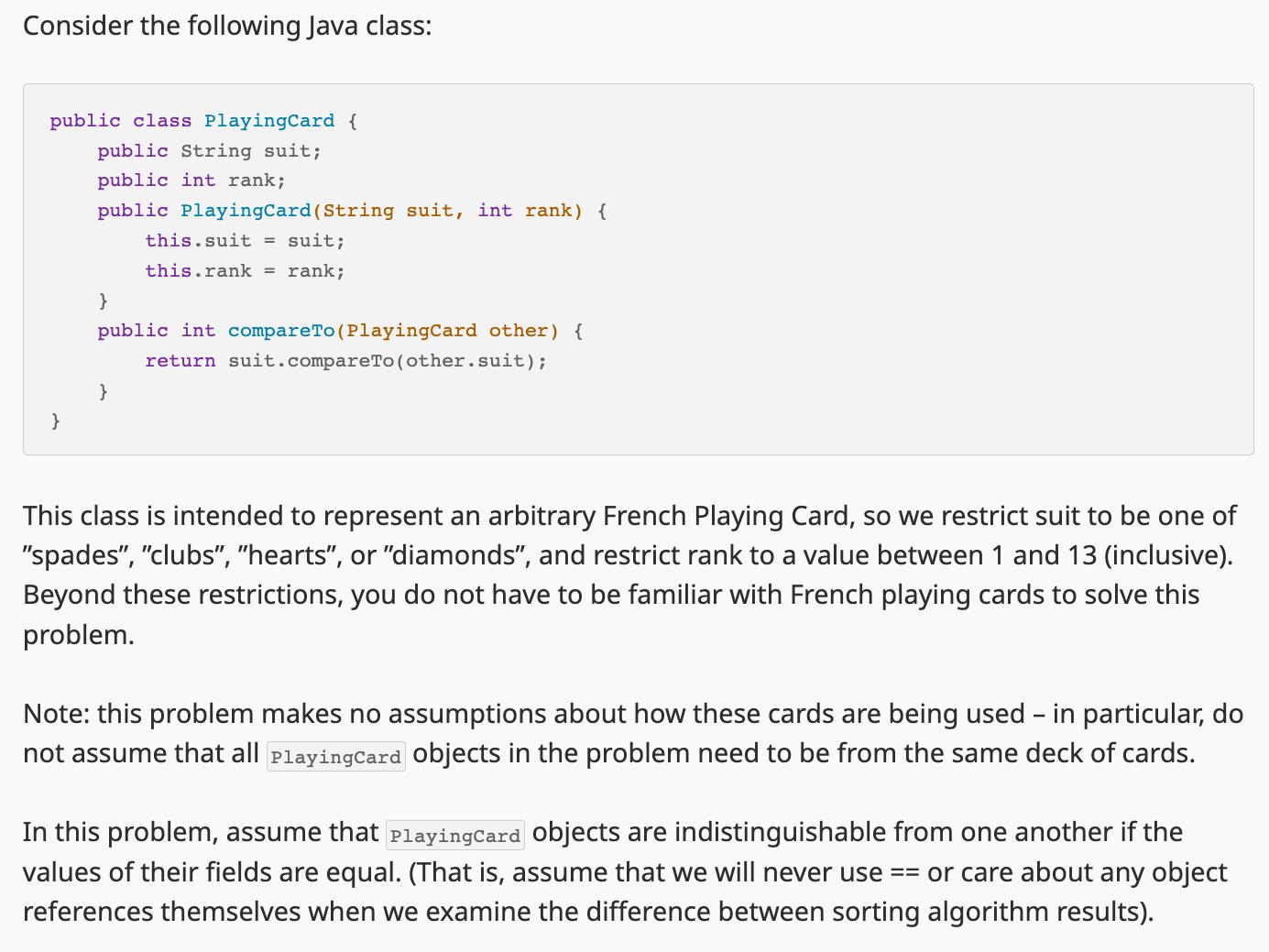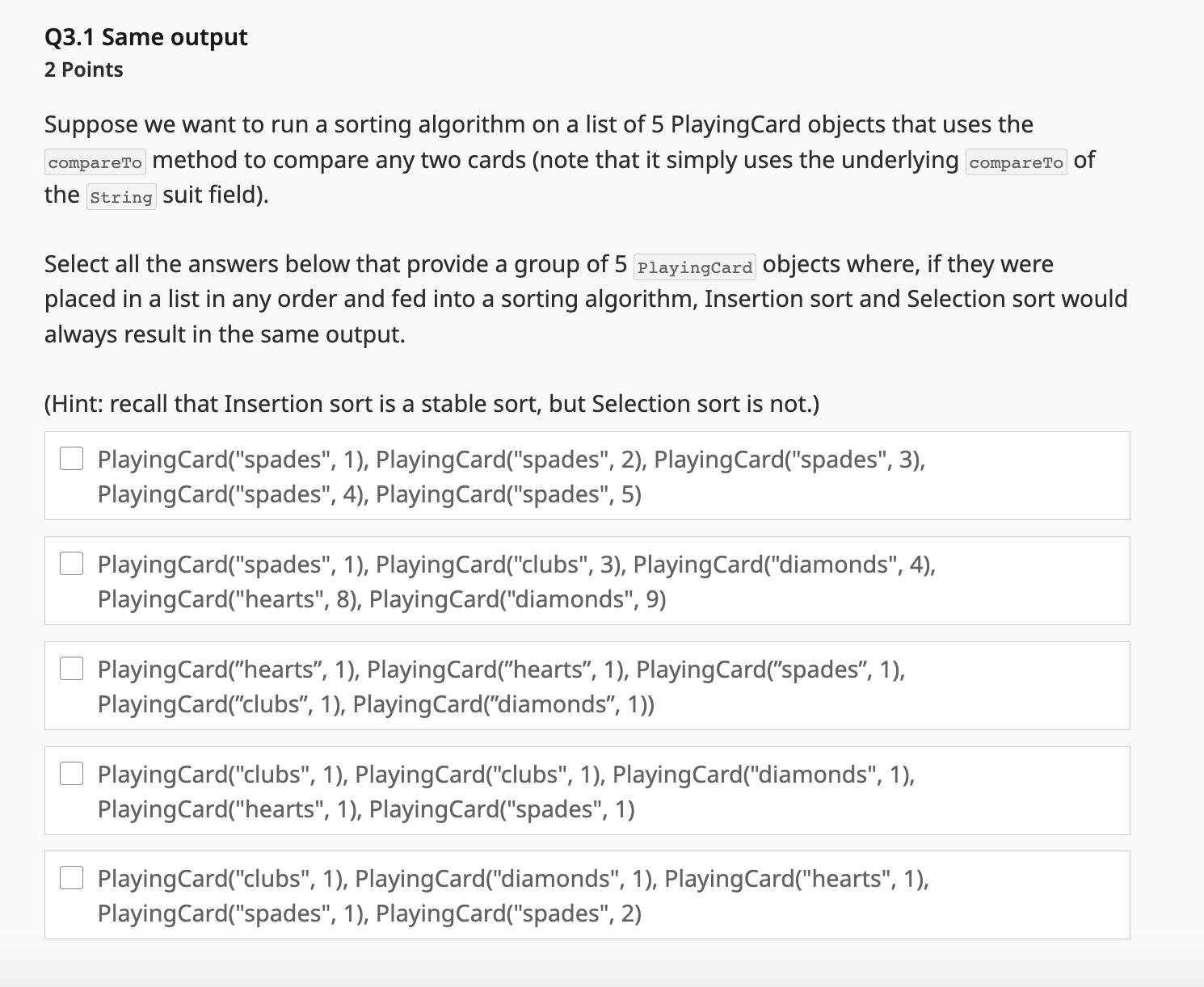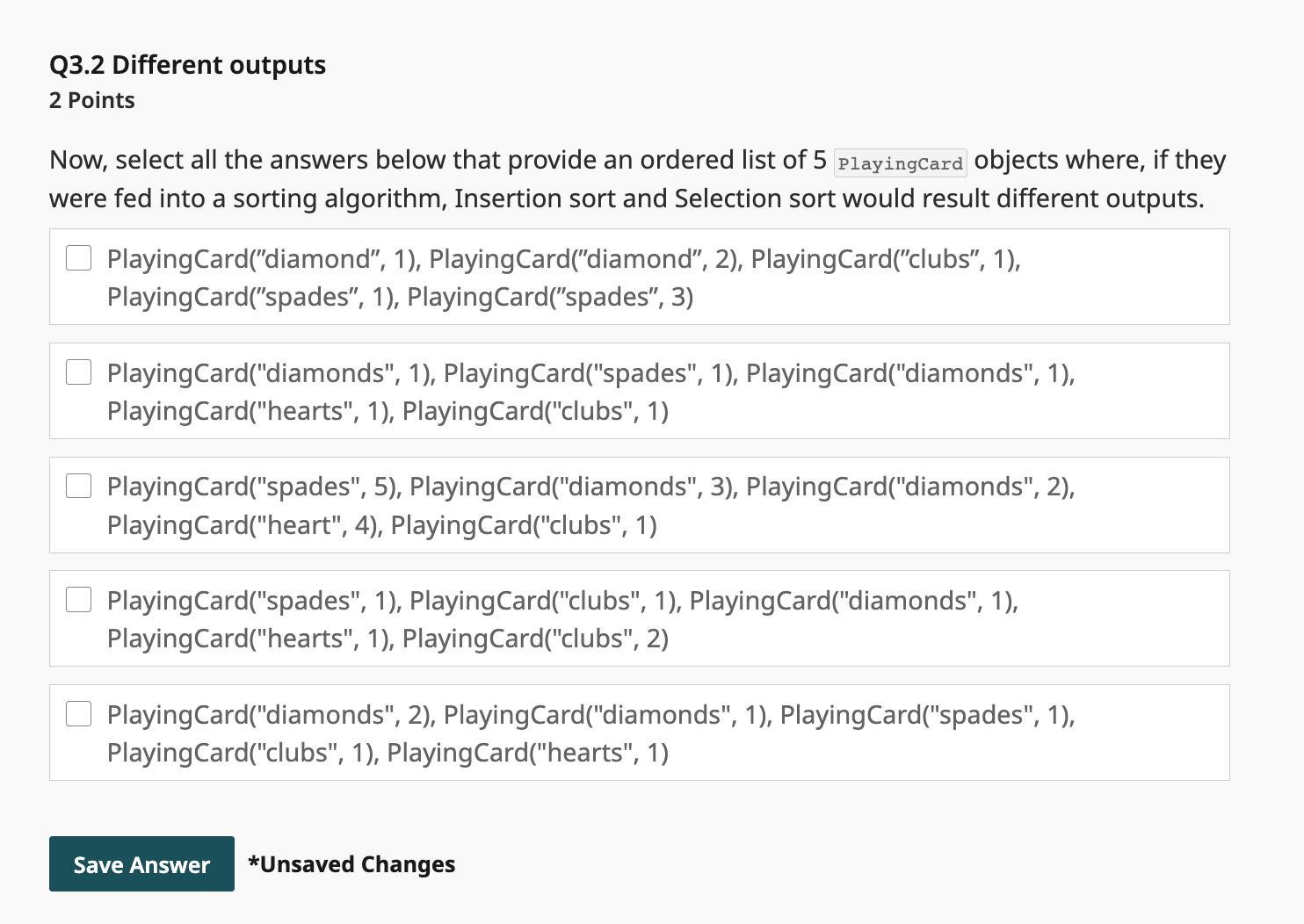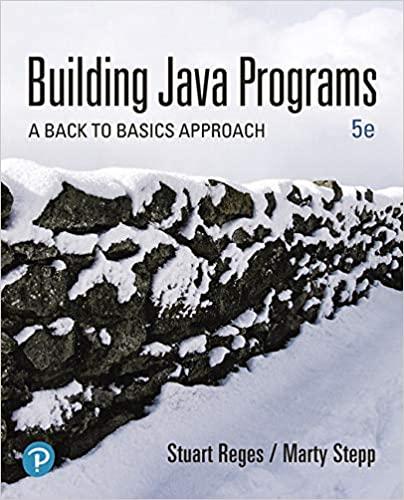Answered step by step
Verified Expert Solution
Question
1 Approved Answer
Consider the following Java class: public class PlayingCard { public String suit; public int rank; public playingCard (String suit, int rank) { } this.suit



Consider the following Java class: public class PlayingCard { public String suit; public int rank; public playingCard (String suit, int rank) { } this.suit = suit; this.rank = rank; } public int compareTo (Playing Card other) { return suit.compareTo (other.suit); } This class is intended to represent an arbitrary French Playing Card, so we restrict suit to be one of "spades", "clubs", "hearts", or "diamonds", and restrict rank to a value between 1 and 13 (inclusive). Beyond these restrictions, you do not have to be familiar with French playing cards to solve this problem. Note: this problem makes no assumptions about how these cards are being used - in particular, do not assume that all playingCard objects in the problem need to be from the same deck of cards. In this problem, assume that playingcard objects are indistinguishable from one another if the values of their fields are equal. (That is, assume that we will never use == or care about any object references themselves when we examine the difference between sorting algorithm results).
Step by Step Solution
★★★★★
3.43 Rating (153 Votes )
There are 3 Steps involved in it
Step: 1
Q31 Same output The following groups of 5 playingCard objects will always result in the same output ...
Get Instant Access to Expert-Tailored Solutions
See step-by-step solutions with expert insights and AI powered tools for academic success
Step: 2

Step: 3

Ace Your Homework with AI
Get the answers you need in no time with our AI-driven, step-by-step assistance
Get Started


